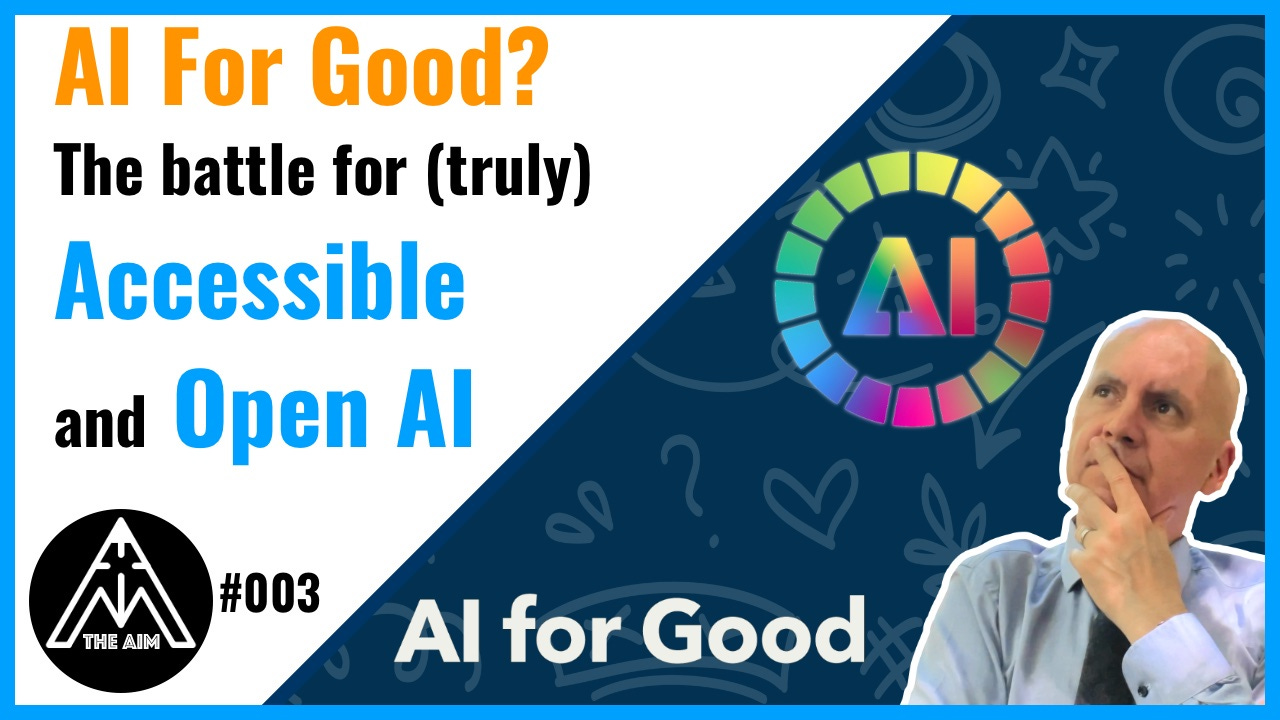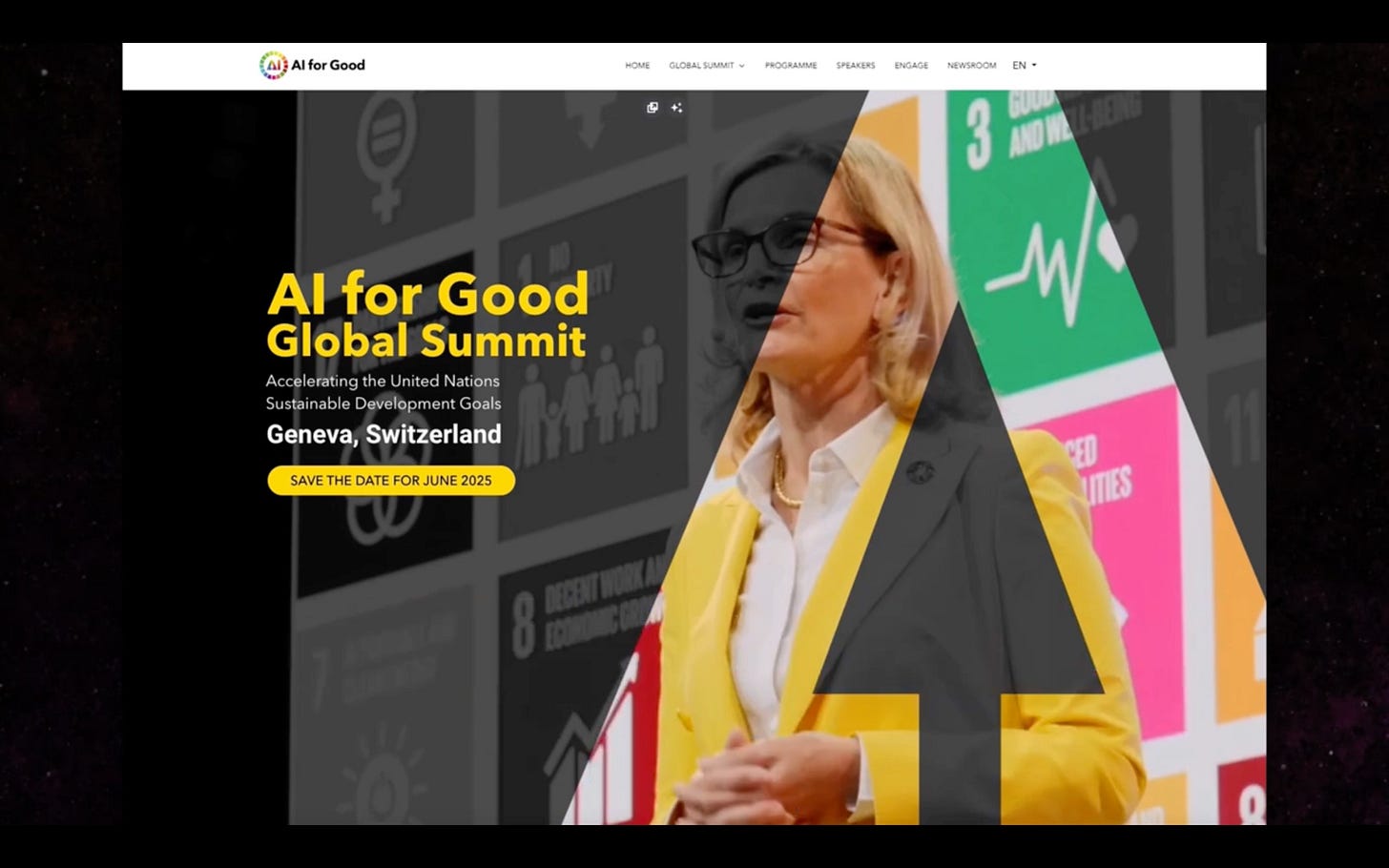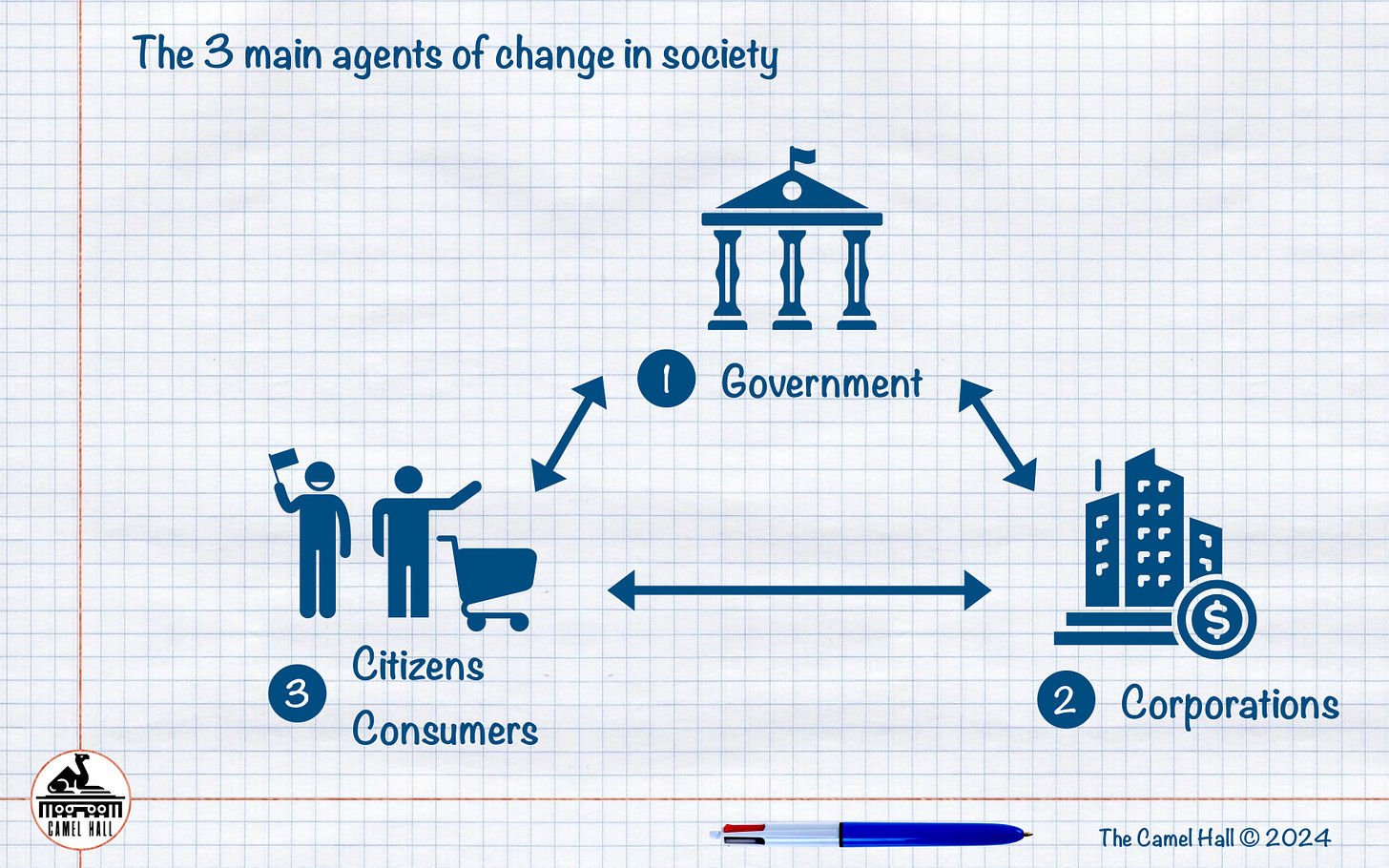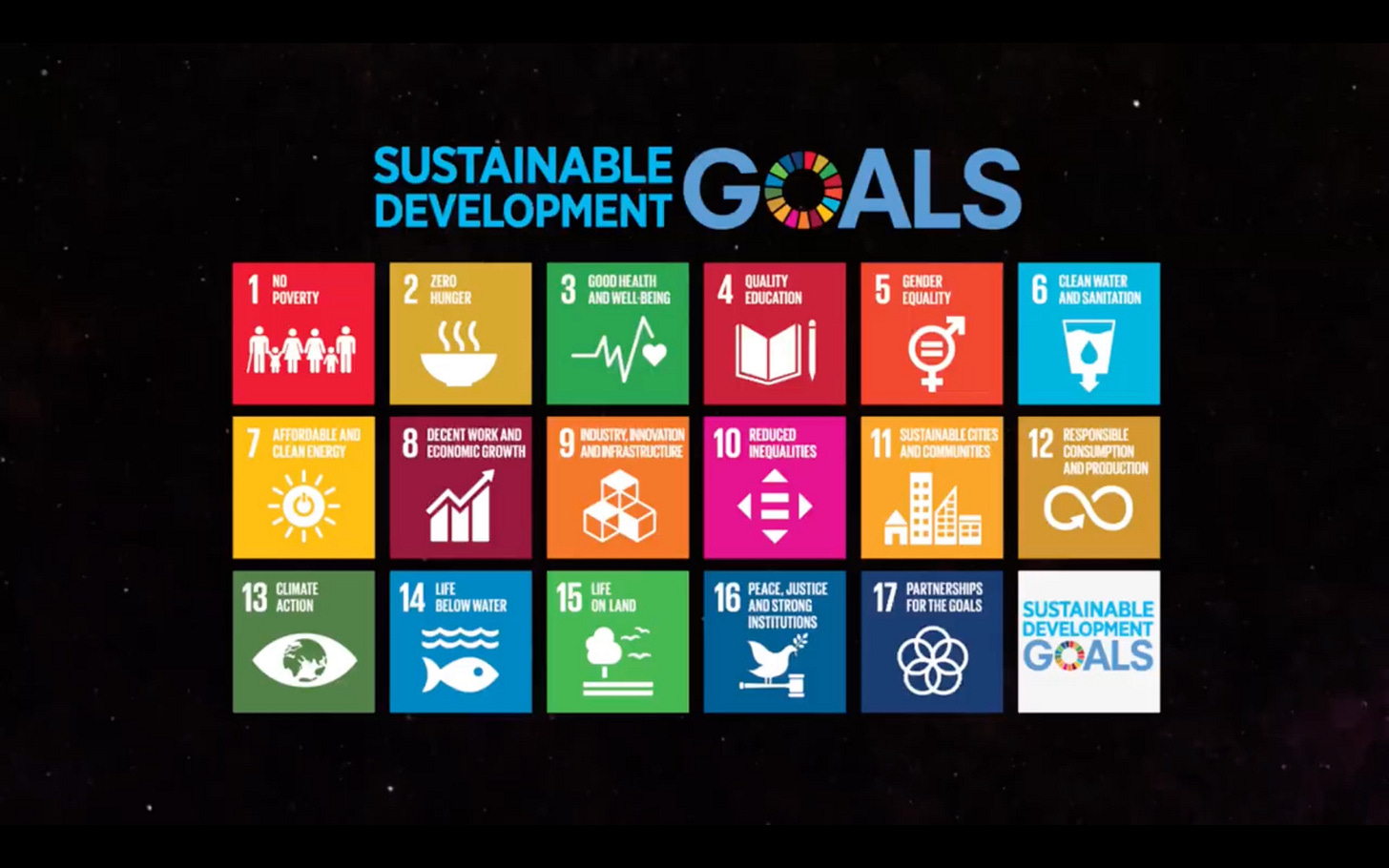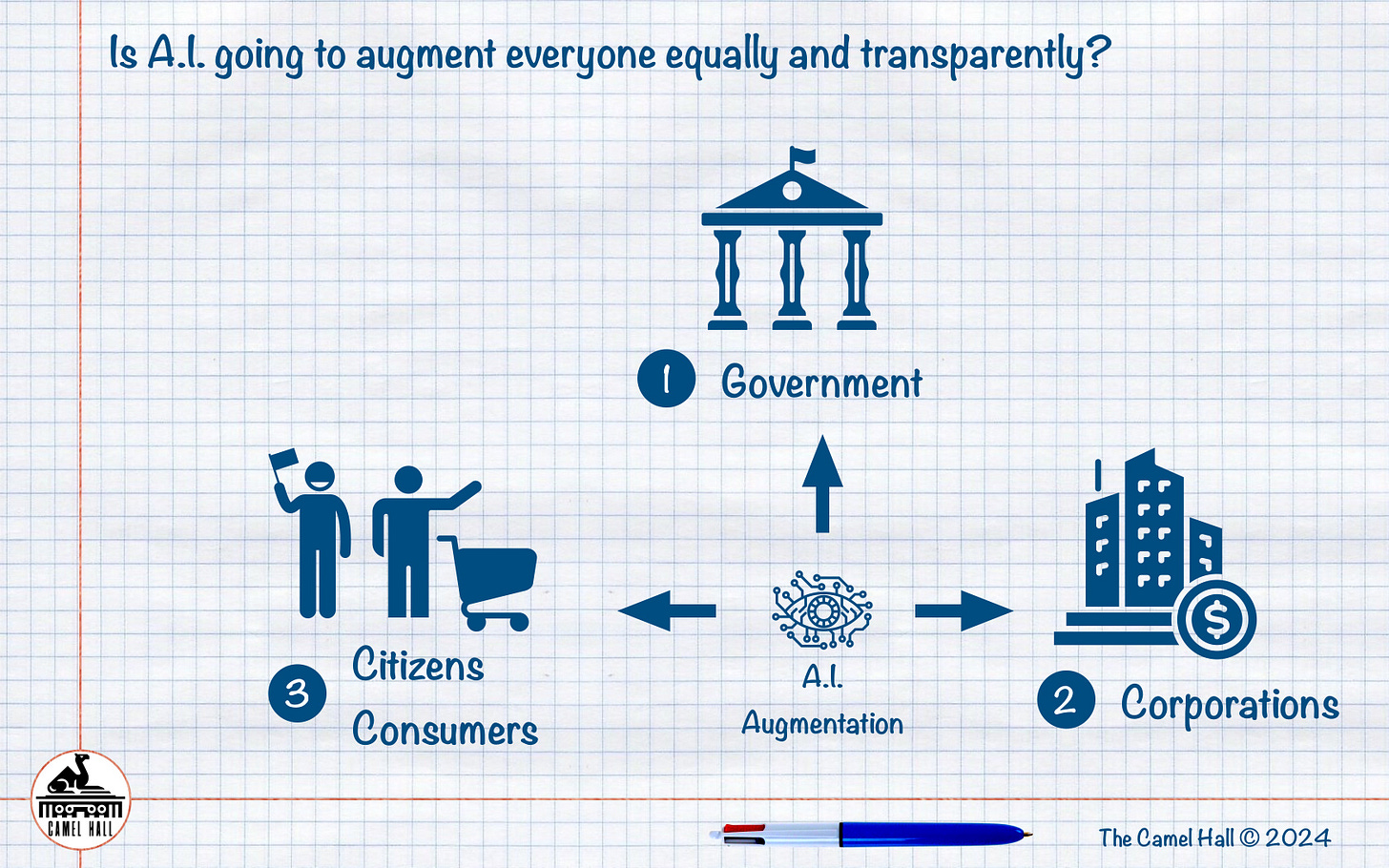The 30-second Takeaways
AI for Good initiative aims to leverage AI for global challenges and UN Sustainable Development Goals.
The concept of "tech for good" raises questions about the nature of technology and its ethical implications.
Three primary agents of change - governments, private corporations, and individuals - have complex, often conflicting agendas.
AI's impact on these agents could potentially disrupt the current balance of power in modern democracies.
For AI to be truly beneficial, it must be accessible, open, and equitable for all segments of society.
The debate between closed-source and open-source AI technology is crucial for transparency and accountability.
Potential scenarios for AI's role range from equal augmentation to monopolisation or emergence as an independent agent.
Advocacy for open, accessible, and equitable AI development is essential to harness its potential for positive change.
Vigilance about ethical implications and power imbalances is necessary as AI technologies continue to evolve
In recent days, Geneva has become the focal point for discussions on how artificial intelligence (AI) can be leveraged to benefit humanity. The AI for Good initiative, launched under the patronage of the International Telecommunications Union (ITU), aims to explore the potential of AI in addressing global challenges and contributing to the United Nations' Sustainable Development Goals (SDGs).
Understanding "Good" in the Context of Technology
Before delving into AI for Good, it's crucial to examine the broader concept of "tech for good." This term raises important questions about the nature of technology and its impact on society:
Is "good" defined as non-profit, philanthropic, or altruistic?
Does it imply a moral distinction between good and evil?
Can technology itself be inherently good or evil?
Historical examples demonstrate that technology, from fire to writing to nuclear power, has been used for both beneficial and harmful purposes. This suggests that the ethical implications of technology largely depend on human intentions and applications rather than the technology itself.
The Three Agents of Change
To understand how AI for Good fits into the broader landscape of societal change, we must consider the three primary agents of change:
Governments: Elected representatives who create laws, regulations, and policies to govern society.
Private corporations: Profit-driven entities that produce goods and services, including non-profit organisations and religious institutions.
Individuals: Multifaceted actors who play various roles as consumers, citizens, and members of organisations.
These agents often have conflicting agendas and goals, making the process of change complex and nuanced.
AI for Good is a new and powerful "Change Agent"
The AI for Good initiative, being a United Nations-backed program, primarily operates in the realm of governmental and non-profit organizations. Its main objective is to support the 17 Sustainable Development Goals, which address global issues such as poverty, hunger, climate change, and access to resources.
However, the introduction of AI raises important questions about how it will impact each agent of change:
Will AI augment all agents equally?
Will AI be monopolised by a select few companies or governments?
Will the benefits of AI be accessible to everyone or only to the privileged?
These questions are crucial in determining whether AI will maintain or disrupt the current balance of power in modern democracies.
The Vital Importance of Accessibility and Transparency
For AI to truly be "for good," it must be:
Accessible: Available to all agents of change in sufficient quantities.
Open: Transparent in its development and functioning to avoid hidden agendas or biases.
Equitable: Benefiting all segments of society, regardless of origin, social position, or income level.
The debate between closed-source and open-source technology becomes particularly relevant in this context. Open-source AI models, such as the UAE-sponsored Falcon, represent a step towards transparency. However, it's essential to scrutinize the training data and underlying cultural values that may influence these models.
Potential Scenarios for AI's Role in Society
1. Equal augmentation: AI enhances the capabilities of all agents of change, maintaining the current balance of power.
2. Monopolisation: AI becomes controlled by a few powerful entities, potentially leading to dystopian scenarios reminiscent of Orwell's 1984.
3. AI as an independent agent: AI evolves to become a separate force for change, either leading to a utopian "Gaia" scenario of global consciousness or a dystopian "Skynet" scenario where AI questions human value.
Conclusion: The Path Forward
As the AI for Good initiative unfolds in Geneva, it is crucial to participate in these conversations and advocate for an open, accessible, and equitable approach to AI development and deployment. By ensuring that AI becomes a public service and a commodity available to all, we can harness its potential to elevate global intelligence and problem-solving capabilities.
The ultimate goal should be to use AI as a tool for positive change, addressing global challenges and improving lives across all sectors of society. However, this can only be achieved if we remain vigilant about the ethical implications and potential power imbalances that AI may introduce.
As we move forward, it is essential to continue monitoring and discussing the development of AI technologies, ensuring that they truly serve the greater good and contribute to a more equitable and sustainable future for all.
Until next time, stay curious and keep dreaming! I’ll see you on The AIM.
Thanks and acknowledgements
This Podcast was produced with passion and love in green Geneva, Switzerland. It is proudly sponsored by Valeris Coaching, and primarily produced and delivered by senior coach Lucas Challamel, as part of his Youtube Channel, The Camel Hall.
https://poe.com/Claude-3-Opus, contributed to brainstorm and as a sounding board for some conceptual propositions.
The video was patiently edited with the free version of CapCut, including sound fx, stickers and automated captions (Such a great feature!)
THE AIM: Navigating the Philosophical Frontier of Augmented Intelligence 🧭
Join Lucas Challamel, a veteran tech leader and CTO, as he guides you through the existential questions raised by the rapidly evolving world of artificial intelligence (AI). This is not just another podcast about the technical nitty-gritty — THE AIM dives into the profound implications AI will have on our lives, businesses, and society as a whole.
🌊 AI’s Disruptive Wave
From OpenAI to Google, the AI revolution is swiftly crashing upon us in an unstoppable wave of innovation and disruption. Billions are being invested as tech titans race to develop ever-more powerful AI systems. But are we truly prepared for the philosophical ripples this tidal force will send through industries, governments, and communities worldwide?
📜 The Next Chapter in Human Intelligence
Throughout history, groundbreaking innovations like the printing press, industrial revolution, and computer age have radically reshaped civilisation’s trajectory. Now, AI represents the next seismic reinvention of intelligence itself.
Just as Gutenberg’s press democratised access to information, AI promises to democratise human knowledge and creativity on an unprecedented scale. This AI-powered rebirth will make intelligence universally accessible like never before — a revolutionary force that both inspires awe and demands careful examination.
💡 Illuminating the “Dreaming Machines”
Let’s be clear — today’s AI is not sentient like biological intelligence. These systems are more akin to hyper-advanced “dreaming machines” that generate plausible outputs by recognizing patterns in vast datasets, similar to how our sleeping minds weave dream imagery from our experiences.
While incredibly powerful, today’s AI lacks human capacities for reason, emotional intelligence, and open-ended innovation…for now. But even at this stage, AI raises profound questions. How will these “dreaming machines” impact education, creative industries, and our collective sense of reality?
🧠✨ Augmenting Human Potential
Rather than replacing us, AI’s ultimate potential may lie in augmenting human intelligence as a complementary tool. Imagine having a personal AI assistant to access the world’s skills and knowledge on demand. Or leveraging AI simulations to solve complex multivariable challenges. Or customized AI tutors tailoring lessons to each student’s unique needs.
By amplifying our natural abilities, AI can uplift the entire scope of human potential, accessibility, and achievement. Open-source AI initiatives hint at a future where these augmentation capabilities are available not just to big tech, but to everyone.
⚖️ Navigating AI’s Ethical Implications
Of course, realising AI’s promise will require carefully navigating a minefield of ethical landmines around privacy, surveillance, job displacement, IP rights, disinformation, and more. As AI blurs lines between real and artificial, truth and fiction, we must develop guidelines to wield this power responsibly.
THE AIM brings a human-centric, philosophical perspective to these challenges. Through expert interviews, deep dives, and open discussions, we’ll cut through the hype to explore how best to cultivate AI as a force for individual empowerment and positive global impact.
💥 Embrace the Future of Intelligence
So brace yourself for a mind-expanding journey into AI’s profound existential frontier. Whether you’re a tech innovator, business leader, student, or just intensely curious about the future of intelligence, THE AIM is your guide through both the awe-inspiring possibilities and risks that await.
Join us as we celebrate humanity’s unbounded potential for creativity, empathy and growth — because even as we augment ourselves with AI’s power, our unique strengths as a species will remain indispensable.
Buckle up and get ready to dream alongside the “dreaming machines!” The AI revolution is coming…and Lucas Challamel’s THE AIM will prepare you for its world-shaping impact.
#AI #ArtificialIntelligence #AIPodcast #TechPodcast #FutureTech #EmergingTech #Innovation #Disruption #AugmentedIntelligence
#PhilosophyofAI #ExistentialAI #Ethics #TechEthics #Futurism #Singularity #DreamingMachines #GenerativeAI #LargeLanguageModels


